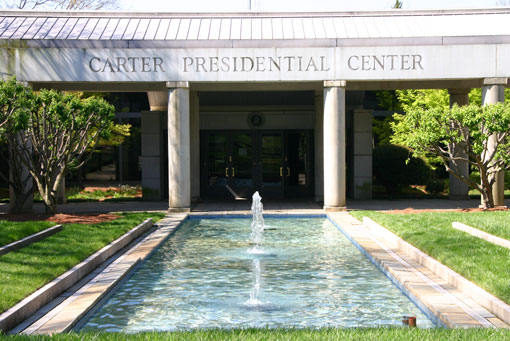The Carter Center’s international headquarters has applauded Liberia on the passage of a new law meant to improve mental health care and prevent discrimination against people with mental illnesses.
The bill was passed by members of the House of Representatives on May 24, 2017 and subsequently signed into law on June 23 by President Ellen Johnson Sirleaf.
The organization was founded by former American president Jimmy Carter and has made an impact on issues related to health care and peace across the world.
According to a Carter Center dispatch from Atlanta, Georgia in the U.S., the law gives access to quality mental health care in the 15 counties to mental health patients.
“The impact of the Mental Health law, meant to improve the health and lives of Liberians, cannot be overstated,†the press release quotes Rosalynn Carter, a co-founder of the NGO, as saying.
The Carter Center described the passage of the law as a landmark to improve health and protect people living with mental health disorders.
“We have been honored to work closely with the Ministry of Health and our partners since 2010 to bolster the capacity of the health care professionals to address mental health issues in Liberia,†the release said.
Before the bill was passed, Dr. Francis Kateh, Liberia’s chief medical officer, along with health care practitioners, advocates, and mental health service users, appeared before members of the Senate and stressed the significance of passing the act.
Since 2010, the Carter Center has worked with partners to train over 200 mental health clinicians across the country. Prior to that, the Carter Center said Liberia’s population of 4.3 million had only one psychiatrist and a handful of mental health nurses to meet the needs of at least 300,000 Liberians suffering from mental illnesses.
“The clinicians have opened 14 mental health services at prisons across the country, trained nurse midwives to screen for maternal depression, provide psychosocial support to refugees of the Ivory Coast conflict, supported Liberia’s first mental health consumer organization, worked in Ebola Treatment Units and provided psychosocial supports to individuals and families affected by the Ebola virus,†the statement added.
Additionally, the Carter Center has also graduated two classes from February 2016 to March 2017 that are specialized in child and adolescent mental health and assigned clinicians to seven schools that have clinics to address mental health issues.
The Mental Health Act provides for and protects the civil, social, and health rights of individuals with mental disabilities including intellectual disabilities.
The law also promotes and regulates access to effective, timely, appropriate and quality mental health care for persons with mental illness.
Featured photo courtesy of the Carter Center




